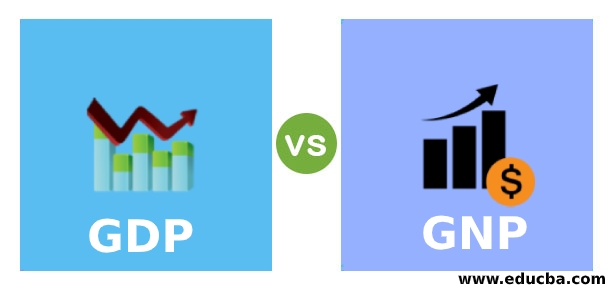GDP VS GNP: Understanding the Key Differences
Introduction
Welcome to the world of economics, where acronyms like GDP and GNP are often thrown around. But what exactly do they mean? In this article, we'll delve into the fascinating realm of Gross Domestic Product (GDP) and Gross National Product (GNP), exploring their definitions, calculation methods, differences, significance, criticisms, and more.
Understanding GDP and GNP
What is GDP?
GDP stands for Gross Domestic Product. In simple terms, it represents the total value of all goods and services produced within a country's borders during a specific period, typically a year or a quarter.
What is GNP?
On the other hand, GNP stands for Gross National Product. Unlike GDP, which focuses on production within a country's borders, GNP considers the total output produced by a country's residents, whether they are located domestically or abroad.
Calculation Methods
GDP Calculation
The calculation of GDP involves adding up the value of consumption, investment, government spending, and net exports (exports minus imports). It provides a snapshot of a country's economic health and activity within its borders.
GNP Calculation
GNP calculation is a bit different. It includes GDP plus the net income earned by a country's residents from overseas investments and work. In essence, it measures the total output generated by a country's citizens, regardless of their location.
Differences
Definition Difference
The primary distinction between GDP and GNP lies in their definitions. GDP measures production within a country's borders, while GNP measures production by a country's citizens, regardless of location.
Geographic Scope
Another difference is the geographic scope. GDP focuses solely on domestic production, whereas GNP includes both domestic production and income generated abroad.
Income Components
GNP accounts for income earned by a country's citizens from foreign investments and employment, while GDP does not factor in such income.
Foreign Transactions
Since GNP considers income earned abroad, it includes net foreign income, whereas GDP does not incorporate such transactions.
Importance and Applications
Economic Indicator
Both GDP and GNP serve as crucial economic indicators, providing insights into a country's economic performance and growth over time.
Policy Making
Governments use GDP and GNP data to formulate economic policies, such as fiscal and monetary measures, to stimulate growth, manage inflation, and address unemployment.
International Comparisons
GNP is particularly useful for comparing the economic performance of countries with significant overseas investments or expatriate populations, offering a broader perspective than GDP alone.
Criticisms and Limitations
Economic Structure
Critics argue that GDP and GNP fail to account for the distribution of wealth and income within a country, overlooking disparities and inequalities.
Quality of Life
Some economists contend that GDP and GNP do not adequately reflect citizens' well-being and quality of life, as they focus solely on economic output without considering factors like health, education, and environmental sustainability.
Conclusion
In conclusion, GDP and GNP are essential metrics in the field of economics, offering valuable insights into a country's economic activity and performance. While GDP measures production within borders, GNP provides a broader perspective by including income generated abroad. Understanding the differences between these two indicators is crucial for policymakers, economists, and anyone interested in analyzing economic trends on a global scale.
